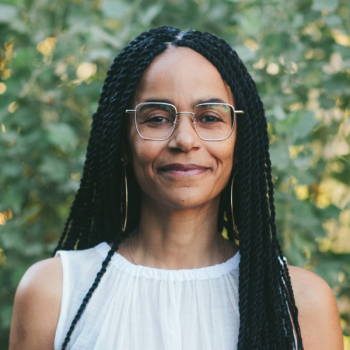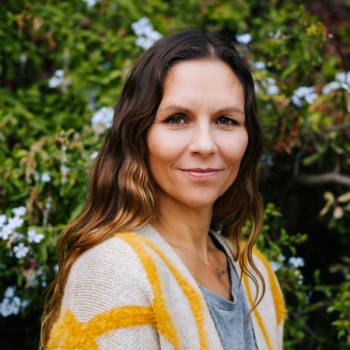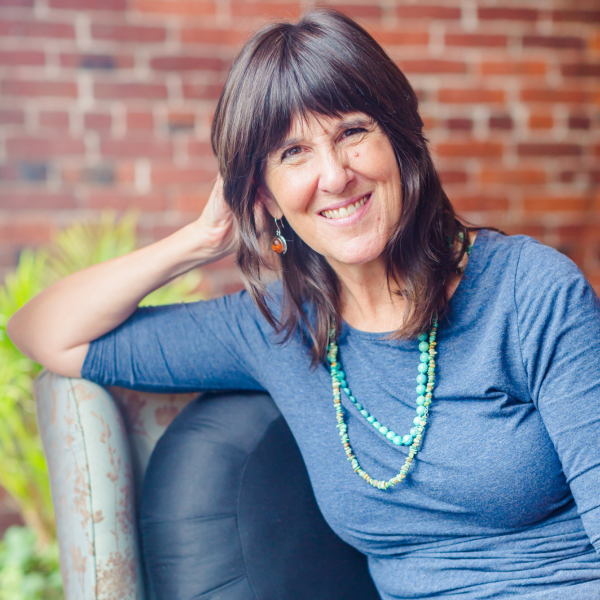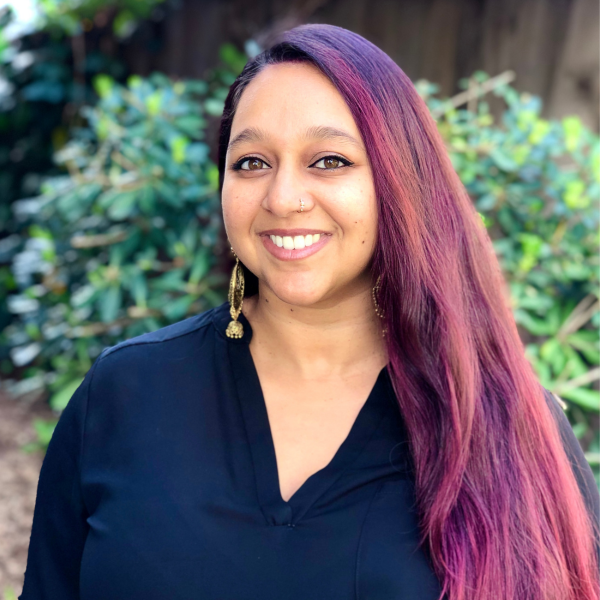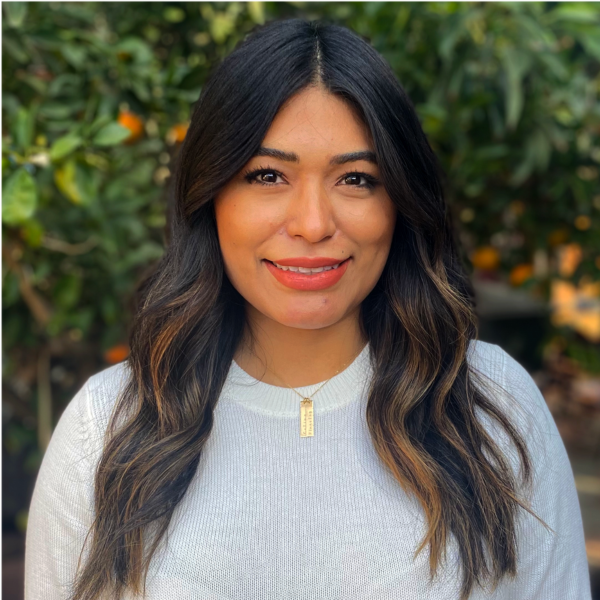Facilitator Certification Program
Teach resilience and create change.
Find out in a FREE upcoming Info Session.
The Resilience Toolkit Certification Program gives Facilitators a deep, embodied understanding of stress and trauma physiology in a groundbreaking framework for building inner resources and creating meaningful change. Our Certification Program prepares you to implement The Resilience Toolkit in your own life, so you can authentically and competently guide others along a path of healing and transformation.
Your path to Certification
All About Certification
Your clients lack motivation and follow through, or simply can’t break through plateaus. You feel like you’re just chasing your patients’ problems around a tree, more a game of whack-a-mole than true healing. Your students are distracted or disruptive, and not meeting their potential.
Regardless of your profession, working with people who are stuck in cycles of stress and trauma is frustrating. Stress and trauma create so much of the dysfunction, distress, and disease that block human healing, growth, and success. Yet with effective tools that unwind stress and build resilience, you successfully navigate challenges, feeling competent and content in your professional abilities.
There are many stress reduction modalities. So what’s unique about The Resilience Toolkit?
- Utilizes a carefully selected suite of mindfulness and movement practices applied based on stress cycle activation
- Activates the human body’s physiologic mechanism to complete the stress and trauma cycle – the therapeutic tremor
- Easily learned, reproduced, and practiced with immediate results being the norm
- Successful in both stress management and trauma healing contexts
- Designed to be used in individual therapeutic environments, group settings, or as a self-help modality
- Smoothly integrates with other traditional mental health and/or physical treatment modalities to support health and healing for those with more severe emotional and/or physical dysfunction or disease
- Can be used across the lifespan from school age to geriatric populations
- Explicitly addresses social ecological risk and protective factors
- Links the development of individual resilience with increased capacity to work for positive change on the community and structural levels
- Inherently cross-culturally adaptive due to the biologic nature of the therapeutic tremor
- Minimal contraindications
- Cost-effective
Grounded in theory and a social justice context, The Resilience Toolkit utilizes carefully curated evidence-based and promising stress reduction practices. These mindfulness and movement skills promote embodied self-awareness, nervous system and emotional regulation, and interpersonal connection. The Toolkit empowers people with an intersectional framework to identify their own stress cycles, confidently implement appropriate regulation skills in a way that honors cultural and historical experiences, and effectively build resilience over time.
Program Requirements
The Resilience Toolkit Facilitator Certification program is a rich experiential process that gives you the tools to take The Toolkit into the world. In an all virtual format, the cohort-based program consists of recorded and live lectures, small group mentoring and discussion, peer and independent practice sessions, suggested reading and reflective writing, supervised teaching, and case consultation. Interactive and cooperative learning foster responsibility, self-awareness, and competency.
Program Requirements
Admission requirements: The Resilience Toolkit Facilitator Certification Program is open to anyone interested in working with stressed and traumatized people.
Prerequisite:
- Attendance in The Resilience Toolkit 3-part series OR 3 individual Toolkit sessions
- Completion of The Resilience Toolkit Workbook or similar reflective journal
- Completion of two months of active membership in Lumos’ The Alchemical Resilience Collective,which includes a minimum participation in 8 sessions
Enrollment:
For those who have completed all prerequisites, the Cohort 16 enrollment closes Tuesday, 20 August 2024 at 11:59pm UTC-07h (find in your time zone)
Program Length:
- 18 weeks
Average Time Commitment:
- Six hours weekly, PLUS three 4.5-hour workshop sessions
Program Requirements:
- Opening Meet the Faculty and Students Session
- Three online 4.5-hour weekend workshop sessions on the Saturdays of weeks 6-8
- Online pre-recorded lectures
- Individual mentoring sessions (online or in-person)
- Two session facilitating Toolkit w/ individuals (*The Certification Trainer may add extra sessions or assignments at their optional discretion).
- Two sessions facilitating Toolkit w/ small groups (*The Certification Trainer may add extra sessions or assignments at their optional discretion).
- Eight virtual 1.5 hour small group meetings with Trainer every other week
- Minimum of 13 weekly virtual 0.5 hour peer group practice and facilitation sessions
- Minimum of one peer individual facilitation
- 14 weekly written journal reflections on personal practice
- Independent and peer-based writing and presentations
- Selected articles and media
- Case study
- Closing Gathering
Technology Requirements:
- Computer with webcam
- Stable internet connection
- A Gmail account to access Google Classroom platform
- Basic proficiency with Google documents
Professional Requirements:
- Professional liability insurance during facilitation portion of the program
Curriculum
Program Objectives
Trainees will demonstrate:
- Embodied knowledge of personal body-mind system with focus on stress-relaxation physiology and trauma responses.
- Ability to identify, attune, follow, and respond to others’ body-mind system, especially stress-relaxation physiology and trauma responses.
- Explore the impact of historical, cultural, and ecological context on stress-relaxation physiology and trauma responses with individuals and groups.
- Ability to competently and safely teach Toolkit framework and facilitate Toolkit skills to others for regulation, resourcing, and stabilization within the trauma-informed paradigm.
- Ability to support others in developing robust, sustained personal practice of The Toolkit.
Program Curriculum
- Embodied self-awareness
- Stress and resilience from multiple lenses:
- Ecology and ethology
- Evolutionary neurobiology
- Anatomy and physiology
- Biopsychosocial and social ecology
- Neurophysiology
- Sex and gender
- Race, culture, and history
- Instruction and facilitation of Toolkit mindfulness and movement practices with individuals and groups
- Trauma-informed facilitation principles
- Facilitation in virtual settings
- Ethics and professionalism
- Behavior change theory
- Lessons from Motivational Interviewing
- Habit formation
Enrollment & Schedule
Enrollment Deadline:
Cohort 16 enrollment closes Tuesday, 20 August 2024 at 11:59pm UTC-07h (find in your time zone)
Certification Schedule:
Cohort 16 of The Resilience Toolkit Facilitator Certification Program has a maximum cohort size of 24 trainees, divided into mini-cohorts with a maximum of 12 trainees per group. One mini-cohort meetsat timings more convenient to the Americas and the other meets at timings more convenient to Africa and Europe. You choose which mini-cohort you’d like to join.
Here are the required virtual meeting times. Click here to find in your time zone.
Certification course opens 10 September 2024
| Opening Gathering:
Meet the Faculty and Students |
10 September at 1630-1730 UTC |
| Mini-cohort meetings: Americas | 17 September, 1 October, and 15 October at 0000-0130 UTC
12 November, 26 November, 10 December, 7 January, 21 January at 0100-0230 UTC |
| Mini-cohort meetings: Africa/EU | 17 September, 1 October, and 15 October at 1600-1730 UTC
12 November, 26 November, 10 December, 7 January, 21 January at 1700-1830 UTC |
| Weekend Workshops | Saturdays 19 October, 26 October and 2 November at 1400-1830 UTC |
| Closing Gathering | 4 February at 1730-1830 UTC |
Cost & Payment
Program Costs and Payments
Cohort 16 – US
- Tuition Total is $3,700 USD
- $980 USD enrollment deposit due upon registration and applied towards tuition.
- You can opt-in to enroll with a 6-part payment plan – $100 USD payment plan admin fee applies
- CEU certificate cost is $30 USD for weekend workshop (optional)
Cohort 16 – UK
- Tuition Total £ 2,923 GBP
- £ 774 GBP enrollment deposit due upon registration and applied towards tuition.
- You can opt-in to enroll with a 6-part payment plan – £ 79 GBP payment plan admin fee applies
Enrollment Policies
* Cancellation Policy: Registration fee is fully refundable prior to beginning program ONLY with at least 10-day written notice, minus a $100 USD administration fee.
* Withdrawal Policy: Trainees who cancel with less than 10-day notice or withdraw early from the Program will receive a prorated refund based on the number of weeks remaining at the point of withdrawal at $218 USD per week, minus an early withdrawal fee of 10% of the remaining balance.
* Program Extension Policy: Participants who do not complete the program in 18 weeks, will incur a $200 USD monthly charge until program completion or withdrawal, whichever comes first. The monthly charge will not be prorated. If the Certification Trainer determines that extra supervisions are needed for the trainee to meet basic competency, the extra supervisions will be billed at $175 USD per hour.
* Transfer Policy:
- Up to 8 weeks – Trainees who opt to transfer to a later cohort will receive a prorated refund based on the number of weeks remaining at the point of transfer at $218 USD per week, minus a transfer fee of $370. At re-enrollment, Trainees will pay $109 USD per week for the weeks up to the original point of transfer and $218 USD per week thereafter.
- After 8 weeks – Trainees who opt to transfer to a later cohort will receive a prorated refund based on the number of weeks remaining at the point of transfer at $218 USD per week, minus a transfer fee of $550. At re-enrollment, Trainees will pay $218 USD per week from the original point of transfer through the remainder of the Program.
Scholarships
In an effort to increase representation, equity, and access, our hope is for this scholarship to make an impact in the lives of people who hold historically and systemically marginalized identities, and who live and work in geographical areas that are also historically and systemically marginalized, that are part of the Global South, or where there are currently no Resilience Toolkit Facilitators.
Scholarship description
Currently there are two $500 USD scholarships, which decreases the certification cost to $3,200 USD.
Application Process:
- Submit application here: https://forms.gle/JXPrBNKaHzmajacb8
- Scholarship applications will be reviewed on a rolling basis by the Resilience Toolkit Certification Training Team. To be considered for Cohort 16 , applications must be received by 2 August 2024.
- Preference will be given for applicants who:
- Have completed Resilience Toolkit Certification Program prerequisites
- Hold historically and systematically marginalized identities
- Live and work in geographical areas and with individuals, organizations, and/or communities that are historically and systematically marginalized
- Live and work in the Global South
- Live and work in areas where there are no Resilience Toolkit Facilitators
- Describe a clear plan for using their Resilience Toolkit training with marginalized individuals, organizations, and/or communities
- Agree to complete a post-certification quarterly survey tracking the impact of their Resilience Toolkit work, including demographics and numbers of people reached.
- Applicants will be notified of their selection by email before the start of each training cohort. For Cohort 16, applicants will be notified by 9 August 2024.
- Applicants who are not selected will have the option to roll their application over for the subsequent training cohort.
Continuing Education Credits
Professional Continuing Education Credits for Registered Nurses
- Participants eligible for 6.5 Continuing Education Units (CEUs) per in-person full workshop day and 2.5 CEUs per in-person half workshop day from the California Board of Registered Nursing
- Provider approved by the California Board of Registered Nursing, Provider #CEP15871, for total of 15.5 Contact Hours
Certification Levels
Level I Certification
- Requirements
- Completion of the foundational Level I Certification course
- Benefits
- Lifetime Level I Certification
- Lifetime access to the foundational Level I Certification course online content (Cohorts 13 and beyond)
- Listing in the Certified Facilitator database on The Resilience Toolkit website indicating certification level
- Membership in private online community for Certified Facilitators
- Eligibility to license The Resilience Toolkit Workbook for clients
Level II Certification
- Requirements
- Level I Certification
- Completion of a minimum of four mentorship hours or approved continuing education per calendar year
- Benefits
- All benefits of Level I Certification
- One free post-certification group mentorship session annually
- Fifty free usages of The Resilience Toolkit Workbook for clients
Level III Certification
- Requirements
- Level II Certification
- Initial application
- 60 individual sessions, at least 20 of which must be with unique clients
- 15 small group (3-6 people) and 10 med-large group (7 or more people) sessions, with a minimum of 125 total combined group participants
- Two case studies over 4-session period OR one case study over 8-session period
- Interview with a Certification Trainer
- Completed application
- Renewal – Completion of a minimum of eight mentorship hours or approved continuing education per calendar year
- Benefits
- All benefits of Level I Certification
- Two free post-certification group mentorship sessions annually
- Unlimited usages of The Resilience Toolkit Workbook for clients
Upcoming Trainings
Ready to enroll in our program? Wonderful! Before you proceed, we encourage you to read the details in our Program Requirements, Curriculum, and Enrollment & Schedule tabs above to learn important dates and all you need to get started.
If you need additional assistance, or have any questions, please contact us at info@theresiliencetoolkit.co. We’re here to help you on your journey to becoming a Resilience Toolkit Facilitator.
Toolkit Facilitators Are
Anyone who wants to deeply understand and work with stress, trauma, and resilience.
Parents • Educators • Healthcare Providers • Mental Health Professionals • Social Workers • Coaches • Fitness Professionals • Bodyworkers • Healers • Managers • Public Servants • Activists • Military • Clergy • First Responders
See Our Graduates in Action
Filter
Your Certification Facilitation Team
The Resilience Toolkit Facilitator Certification program is a rich experiential process that gives you the tools to take The Toolkit into the world. Interactive and cooperative learning fosters responsibility, self-awareness, and mastery.
What Graduates are Saying
Join our global community of Certified Facilitators
Certified Facilitators of The Resilience Toolkit are connected in an online community that includes folks in 11 countries across 3 continents.
Ready to begin?
Your journey starts here!
Sign up for an upcoming Roadmap to Trauma Healing and/or Introduction to The Resilience Toolkit session. You’ll learn everything you need to know about The Toolkit, while completing Certification prerequisites.











